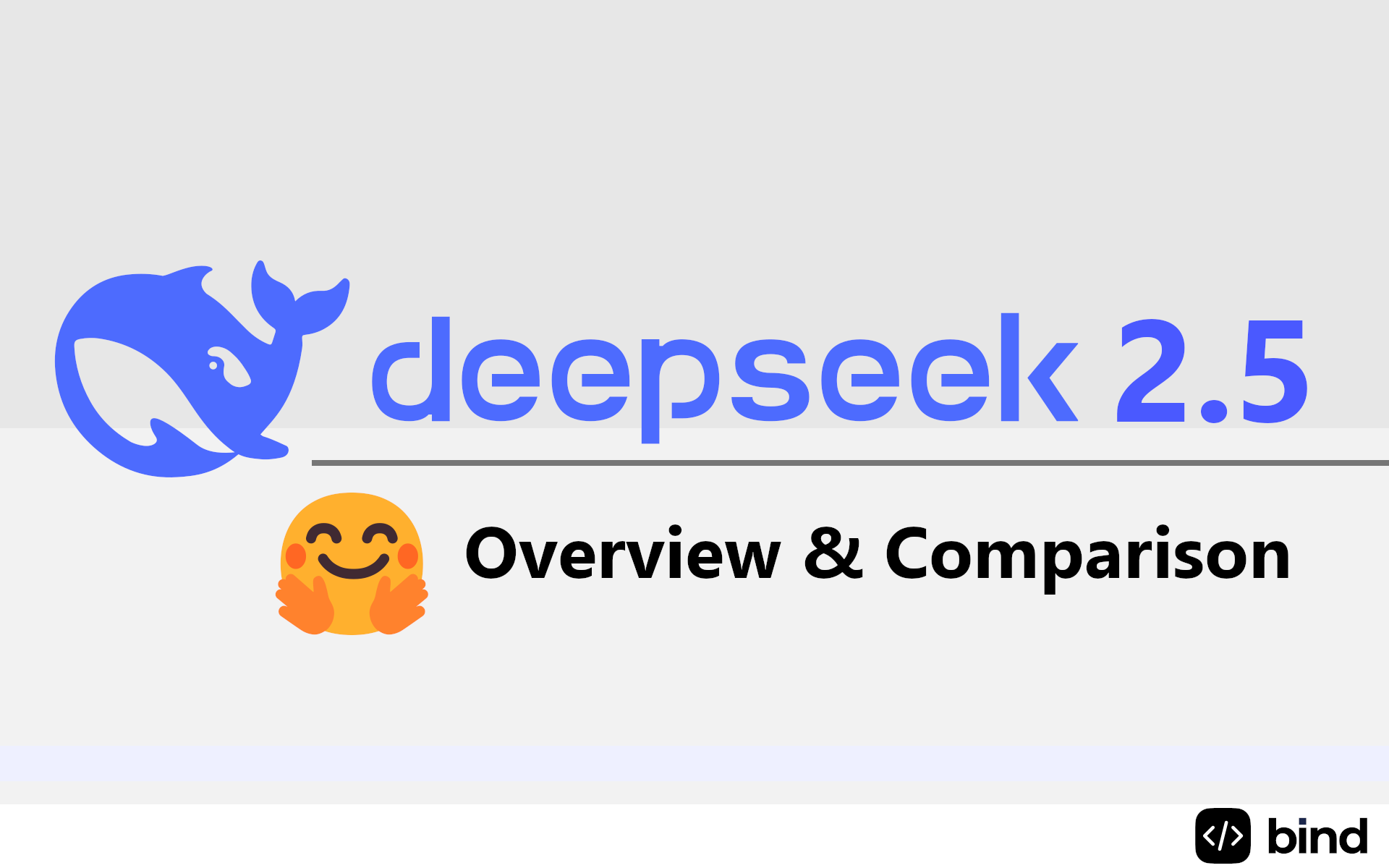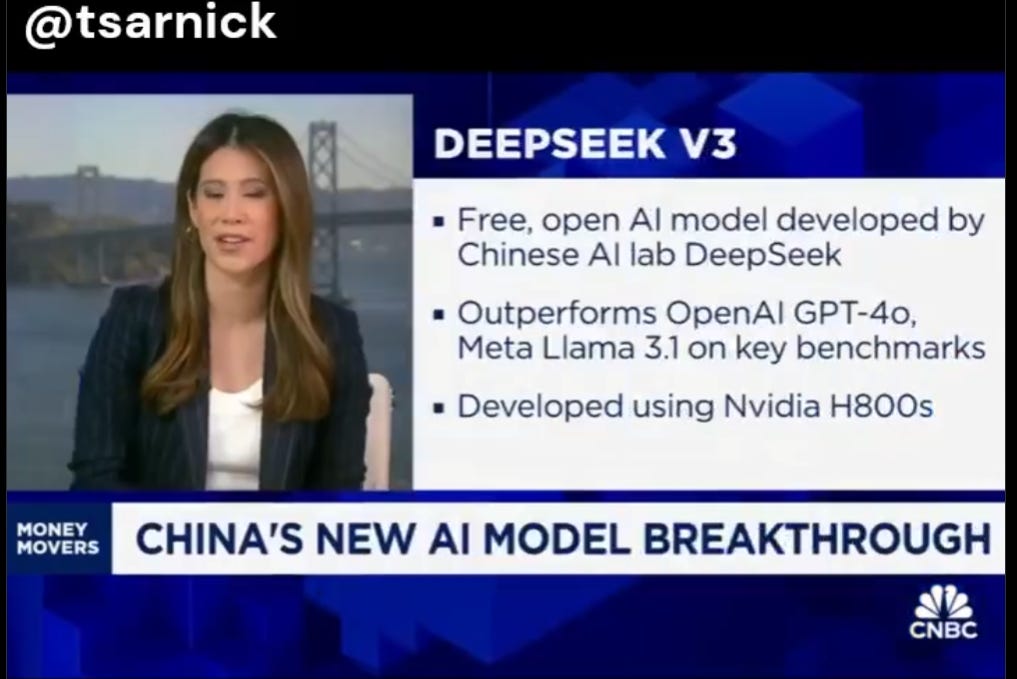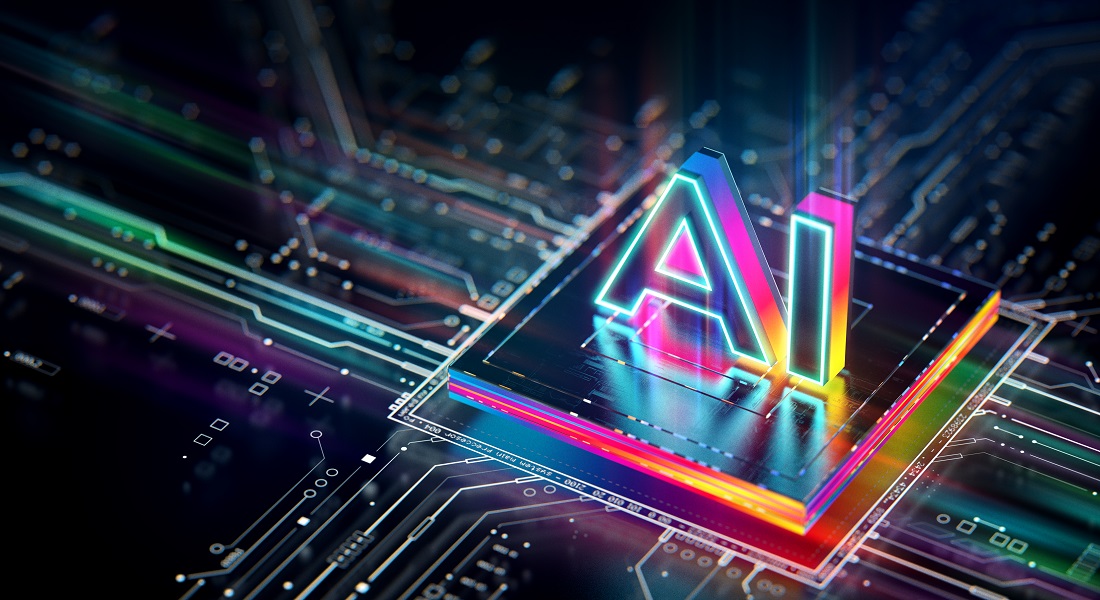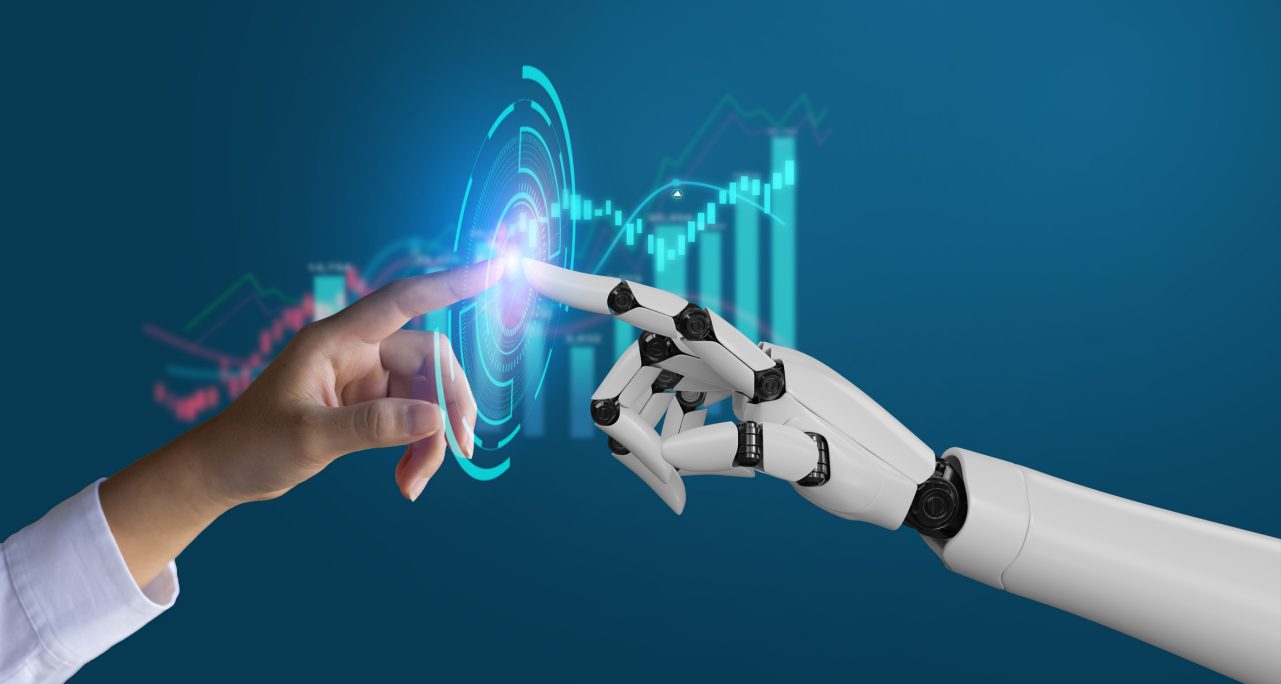
We might earn money when you click on links to our partners. Learn More.

What is synthetic general intelligence (AGI), and wifidb.science why does it matter? As one of the most talked-about subjects in innovation today, it has stimulated a race amongst leading business like OpenAI and Google to turn this cutting-edge concept into truth. Understanding AGI is essential because it has the possible to revamp markets, impact our society in profound methods, and change the method we engage with technology. Here's what you need to know about what it may be able to do, how it might transform markets and fields, and the considerable challenges facing its development.

KEY TAKEAWAYS
• AGI differs from traditional AI in key methods that it would be able to think, discover by itself, and adapt to brand-new obstacles like human beings unlike conventional AI, which is created for specialized jobs and operates within a limited scope. It requires human beings to upgrade and improve abilities. (Jump to Section).
• Once it ends up being a reality, AGI would be able to make impressive advances in numerous fields, including health care, research, and finance sectors. (Jump to Section).
• Creating AGI is difficult due to the research challenges that consist of technical, ethical, and social concerns. Addressing these obstacles is main to keeping the safe and favorable advancement of this innovation. (Jump to Section)
Featured Partners: Artificial Intelligence Software
Find out more
TABULATION
What is Artificial General Intelligence (AGI): A Clear Definition.
Understanding AGI vs Traditional AI.
Potential Applications of Artificial General Intelligence.
Challenges in Artificial General Intelligence Research.
3 Introductory AGI Courses to Consider.
Frequently Asked Questions (FAQs).
Bottom Line: Why Knowing What Is Artificial General Intelligence Matters.
What is Artificial General Intelligence (AGI): A Clear Definition
Artificial basic intelligence, or AGI, refers to a type of synthetic intelligence (AI) that can analyze, discover, and carry out any cognitive task that a human can do. Unlike today's AI, which is built to deal with specific jobs like advising items or processing information, AGI would have the ability to adapt to brand-new challenges and use knowledge throughout various fields. In other words, this advanced type of AI would think and reason like a human. While AGI holds fantastic prospective, it's worth keeping in mind that it is still a concept today, with no completely developed systems offered yet.
Key Capabilities of Artificial General Intelligence

AGI would have a variety of abilities that mimic human intellectual functions, so it can carry out tasks beyond the narrow focus of the current AI tools in the market. Some crucial capabilities include the following:
Human-Like Reasoning: The innovation would have the ability to understand and make choices the method human beings do. It would think critically, fix issues, and develop services based upon its own experiences and past interactions, comparable to how we apply past knowledge to brand-new circumstances.
Solving Unfamiliar Problems: Among AGI's strengths is its prospective to deal with new issues. Unlike standard AI, which is trained to carry out particular jobs, AGI would have the capacity to deal with issues it hasn't been straight trained to fix. It might figure out how to approach a totally brand-new challenge, simply like humans do when confronted with something we've never encountered before.
Self-Learning and Adapting: AGI could fine-tune its skills and find out from experience, without the requirement to be manually upgraded each time. It would observe and evaluate information, gain from mistakes, and find much better ways to complete tasks with time. This indicates AGI could adjust to brand-new scenarios and improve at tasks on its own.
Using Knowledge Across Different Areas: wiki.insidertoday.org AGI would be able to take what it learns in one area and apply it to other tasks. For example, if it learned how to solve mathematics problems, it could use that knowledge to address obstacles in other fields, like science or organization. The capability to move abilities across various areas is something people do naturally and would make the innovation versatile in diverse sectors.
Understanding and Reacting To Emotions: Recognizing and responding to human emotions would also be within AGI's capabilities. This would be essential in settings where comprehending individuals's sensations matters, such as health care, customer support, or social circumstances. By responding to emotions appropriately, AGI would be much better geared up to work with humans in a reliable way.
Understanding AGI vs Traditional AI
The table below supplies a photo of the significant distinctions in between AI and conventional or narrow AI by underscoring their abilities, flexibility, and existing status.
AGI would have the capability to believe, discover autonomously, and adjust to new challenges like humans. However, it is still theoretical and has actually not been realized yet. On the other hand, conventional AI is developed for specific tasks and runs within a fixed scope. It can not adapt to new jobs without human input.
For instance, an AGI might learn to identify medical conditions, then use that understanding to develop individualized treatment plans-and even change its method based on the client's progress. Additionally, it might apply this problem-solving ability to tasks in totally different fields, such as creating organization methods or encouraging on environmental preservation. On the other hand, conventional AI, like a diagnostic tool, can only evaluate medical data for specific conditions. It can not adapt to other areas or improve on its own.
Potential Applications of Artificial General Intelligence
While AGI isn't here yet, wiki.rrtn.org its potential applications cover many fields and hold terrific pledge of drastic improvements in numerous sectors. Without being limited to specific tasks like narrow AI, AGI would be highly flexible and might use its abilities to fix multi-disciplinary problems. It might get rid of obstacles currently beyond the capabilities of existing AI applications.
Transforming Healthcare
AGI would change the video game in health care by diagnosing complex and unusual illness with higher accuracy, even in cases where symptoms are ambiguous or overlap with numerous conditions. It could produce extremely individualized treatment strategies by studying client history, genetic details, and real-time health data. In addition, AGI could accelerate drug discovery, identifying possible treatments in weeks rather than years by processing huge datasets and running predictive simulations.
Advancing Scientific Research
In scientific research, ghetto-art-asso.com AGI would be able to simulate experiments, evaluate complex datasets, and produce hypotheses. It could accelerate developments in quantum physics, genomics, and environment science. By incorporating knowledge from various domains, the innovation might uncover connections and options that may otherwise go unnoticed by traditional AI.
Improving Industry
Organizations in the industrial field could utilize AGI to improve efficiency in real-time by handling whole supply chains. It would predict and resolve interruptions before they occur. In manufacturing, it might oversee autonomous factories, optimizing production procedures while maintaining security and quality requirements. Its ability to adjust to altering scenarios would make it an indispensable tool in commercial environments.
Enhancing Business Strategy
AGI might enhance service decision-making by examining market patterns, customer habits, and operational data to find chances and dangers. In contrast to narrow AI systems, AGI would innovate solutions to difficult company issues, such as dealing with economic uncertainty or forecasting long-lasting market shifts. Its ability to find out from varied sources would empower services to stay competitive.
Redefining Finance
In the monetary sector, AGI could increase forecasting precision by finding patterns in huge quantities of financial information, so investors and organizations can make informed choices. It would also have the ability to spot fraud in real-time by recognizing subtle abnormalities that standard AI systems may miss out on. Additionally, AGI could construct more robust monetary designs, considering complicated variables and circumstances to alleviate risks.

Challenges in Artificial General Intelligence Research
Developing AGI is one of the most enthusiastic goals in innovation, but it comes with many troubles. These obstacles include technical, ethical, and social areas, making AGI development a detailed and multi-faceted process. Overcoming the following obstacles amounts guaranteeing security, maintaining ethical requirements, and thoroughly planning how AGI's introduction and usage will affect individuals, industries, and society as a whole:
Making AGI Truly Flexible: AGI would need to manage a wide variety of issues and adapt to new circumstances, simply like humans. Building a system of flexibility is extremely difficult since present AI tools are not created to believe or learn at this level of elegance.
Massive Computing Needs: To reproduce human intelligence, AGI would need huge amounts of computing power to procedure details from varied sources rapidly. Determining how to make such systems powerful and effective enough for real-world usage is a considerable difficulty.
Understanding Human Intelligence: We do not totally understand how human thinking works, specifically complex elements like instinct or awareness. Without this understanding, it's challenging to develop makers that can replicate human-like thinking.
Making AGI Safe and Ethical: AGI could potentially be misused, like to create biased systems or hazardous tools like autonomous weapons. Researchers must make certain that AG is constructed properly and follows stringent ethical standards. This is a tricky task that necessitates global cooperation.
Keeping It Under Control: There's a risk AGI might act in ways we do not anticipate, especially since it would have the capability to learn and alter with time. Ensuring that these systems remain aligned with human values and are safe to use is one of the biggest difficulties in AGI research.
Effect on Jobs and Society: If AGI becomes a reality, it could change jobs or cause financial inequality by benefitting some groups more than others. Getting ready for these social effects is just as essential as building the technology itself.
High Costs and Resources: Researching AGI requires a great deal of cash, time, and professional knowledge. Not all organizations have these resources, decreasing progress and leaving smaller sized services out of the race.

3 Introductory AGI Courses to Consider
Familiarizing yourself with AGI can provide you a competitive edge, whether you wish to advance your profession in AI or just wish to remain notified about emerging technologies. The following introductory courses can help you gain a deeper understanding of what artificial general intelligence is, so you can strengthen your understanding about this promising AI advancement.
Artificial General Intelligence (AGI): An Initial Course on Udemy
This Udemy course supplies an essential understanding of AGI, appropriate for novices without any prior experience. The course covers relevant subjects, including the structures of AI, the essentials of AGI, and the most recent trends in the field. It also checks out the benefits, risks, and difficulties connected with AGI, equipping you with insights into what the advanced innovation can accomplish. The entire course includes 15 lectures and can be completed in roughly 45 minutes. Upon completion, you will get a certificate to reinforce your credentials in the task market. This introductory course costs $24.99.
Intro to Artificial General Intelligence (AGI): Future of AI on Udemy
Udemy's initial course provides a detailed summary of AGI for learners without any technical background. It goes over the historic context and foundation of AGI, the distinctions between narrow AI and AGI, and ethical considerations surrounding its advancement. In addition, it addresses future patterns in AI and AGI, clarifying the challenges and opportunities that lie ahead. Spanning one hour and 46 minutes, the course includes 39 lectures, on-demand video, and downloadable resources. It likewise has a dry run at the end to enhance your understanding. You will be granted a certificate as soon as you complete the course. It is available as part of Udemy's premium strategies, macphersonwiki.mywikis.wiki starting at $20 per month, or as a different purchase of $49.99.
Artificial General Intelligence (AGI) on Udemy
This Udemy course brings a clear and concise intro to the topic, with on-demand videos and 22 lectures. It elaborates on significant AGI ideas and the role of robotics in AGI advancement. It likewise examines the ethical, software, and hardware challenges in producing AGI. The course supplies tests to test your knowledge and a certificate of conclusion. Priced at $44.99, it is produced students at any level, making it available and important for anybody who wishes to discover more about AGI.
Frequently Asked Questions (FAQs)
Achieving AGI could reinvent markets, enhance decision-making, and result in substantial advancements in innovation. However, it likewise raises concerns about principles, task displacement, and the requirement for correct policy to ensure it is established securely and responsibly.
Experts disagree on how far we are from attaining AGI. Sam Altlman of OpenAI thinks in 2025, AI representatives might join the labor force, ultimately leading the way to AGI development. On the other hand, a study of AI researchers puts the mean quote around 2047. Despite quick AI improvements, current systems are still limited to narrow jobs and do not have the broad, flexible thinking of humans-so AGI is most likely still decades away.
The concept of AGI fully changing people is still debated. Even though it's most likely that AGI will assist us by taking over recurring tasks, there is a possibility that it might displace specific tasks. That stated, instead of completely replacing human beings, AGI is anticipated to work together with us, dealing with technical duties while we focus on jobs that need creativity and compassion. At the end of the day, the impacts of AGI will depend on how society selects to manage and integrate it.
Bottom Line: Why Knowing What Is Artificial General Intelligence Matters
Understanding artificial general intelligence is vital due to the fact that this technology might change industries, solve tough issues, and transform how we utilize AI. But as we begin to develop AGI, we should thoroughly deal with several obstacles, consisting of technical problems, ethical issues, and its overall effect on society. By finding out about AGI's possible and threats, we can work towards making sure it is produced responsibly and utilized in methods that would benefit everybody.


